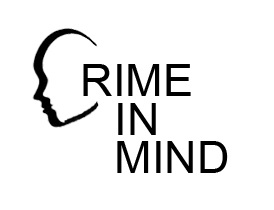The National Forensic Psychiatry Trainee Conference at the end of May, in Worcester College, Oxford was a great success. Many, if not most of the UK’s higher trainees were there and research a strong feature, thanks largely on this aspect of the programme to Chris Lawrence, working with co-organisers Vishni Balakrishnan, Hector Blott and Noura Aljuffali.
One highlight was Professor Seena Fazel’s session on new research into the mental health of prisoners – elements of this overview can be recaptured from his website: www.psych.ox.ac.uk/team/seena-fazel.
Crime in Mind sponsored a prize for the best trainee research presentation. Three interesting reports were offered presentations:
- Cosmina Cross presented a single case study of a supported withdrawal from Kratom, a ‘herbal preparation’ from a plant related to coffee. Although illegal in the UK, this can be easily purchased on open internet and delivered within 24hrs from abroad. It is a highly addictive drug with stimulant properties at low dose and opioid characteristics at higher doses. It is always useful to document unusual or emerging cases with research mindedness.
- Laura Evans, identifying a gap in the literature on clozapine, explored plasma concentrations of its metabolites in older people. As forensic mental health services are increasingly seeing older patients who may be helped by this second generation antipsychotic medication, this is important. She hypothesised lower concentrations among older people than a reference group with early onset psychosis and examined thousands of plasma samples from 481 patients aged between 56 and 70. She has now submitted her findings for publication.
- Gunjan Sharma explored an important medico-legal and rights concern about return to hospital from community living while under restrictions on discharge under English mental health law. While this is not a frequent occurrence, perhaps because it is not, there is no research-informed optimal process. She identified 14 cases in one London hospital between 2012 and 2019. They were admitted to general psychiatric rather than specialist beds, so had little if any immediate access to relevant specialist services. Time to fully engaging the Ministry of Justice, which oversees recalls, averaged 95 days, with a range of 33–175 days. This raises concerns about barriers to being able to treat an acute crisis as an acute crisis, thereby with resolution of a particular problem not damaging often fragile community support systems and about optimal placement while in hospital. Sensitive to the single location and small numbers, Gunjan is keen to extend this research to other hospitals and regions.
Gunjan was awarded the research prize, in the hope that this will help her a little towards that project expansion. All three early researchers will join Crime in Mind and help develop our forthcoming Members’ forum.
Research can transform lives. We want to support discoveries about what helps people with mental disorder who have been victims of criminal behaviour, or perpetrators of criminal behaviour, and their families, and the clinicians and others who treat them and, indeed, the wider community when its members are in contact with these problems. More effective prevention is the ideal, when this is not possible, we need more effective, evidenced interventions for recovery and restoration of safety.
Please help us by donating to Crime In Mind – DONATE TO CRIME IN MIND HERE

